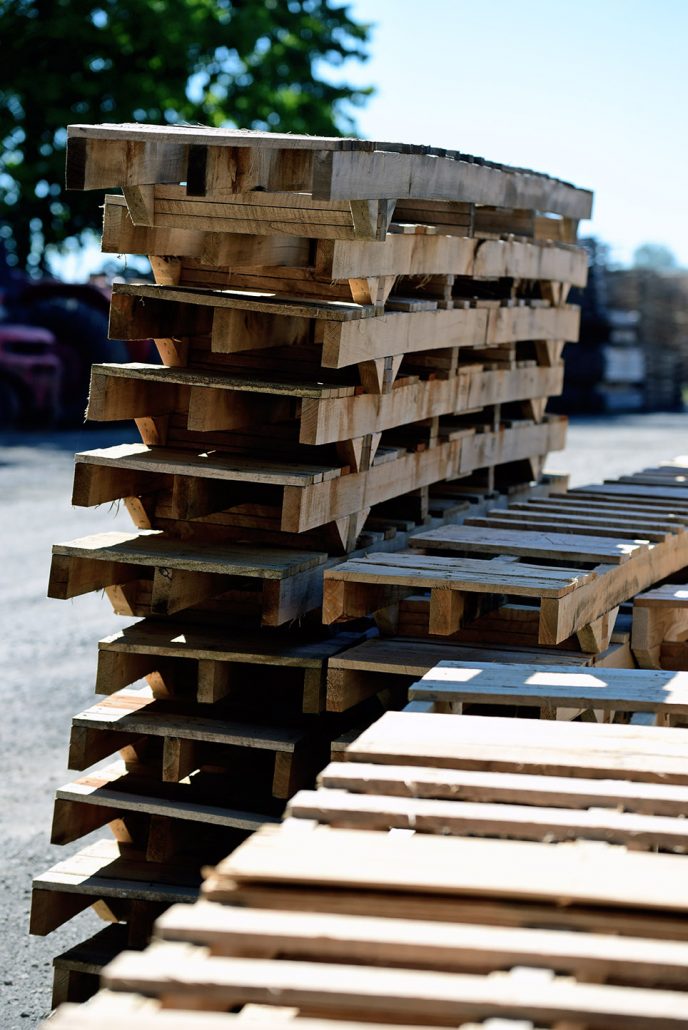Within the dynamic world of logistics and supply chain management, every detail is crucial when it comes to efficiency and cost-effectiveness. One of the often neglected heroes in this realm is the simple wooden pallet. Often overlooked, wooden pallets serve as the backbone for warehouses, enabling the safe and efficient storage and transportation of goods. Their significance goes beyond mere functionality; they are fundamental in optimizing warehouse operations and managing costs effectively.
Wooden pallets offer a variety of benefits that render them a popular choice for numerous businesses. pallets in tulsa are not only cost-effective but also extremely durable, readily repairable, and environmentally friendly, especially when obtained from sustainable timber. Tailored pallets tailored to specific needs can maximize space efficiency and enhance workflow. As companies strive for greater operational efficiency, comprehending the advantages of using wooden pallets in warehouses becomes vital for making informed decisions that improve productivity and lower overhead costs.
Economic Advantages of Timber Pallets
Wood pallets are often considered a budget-friendly solution for warehouses due to their price and resilience. Unlike synthetic or metal alternatives, wood pallets are generally less expensive to purchase upfront. They can be sourced from nearby suppliers, reducing freight costs. Additionally, the longevity of wood pallets makes them a wise investment, as they can endure multiple uses before needing replacing, further spreading out their cost over time.
Moreover, the upkeep costs associated with wooden pallets are relatively low. They can be quickly repaired when worn, which is not always the case with other materials. Simple fixes such as replacing broken boards are often all that is needed to extend the life of a wooden pallet. This ability to repair extends their usability and minimizes the need for frequent replacements, resulting in significant savings for distribution operations.
In addition, timber pallets offer versatility in inventory and transportation. They can accommodate a variety of products and can be customized to fit unique needs, leading to optimized space usage in warehouses. By maximizing storage capacity and ensuring safe transport, timber pallets can minimize overall operational costs. The financial benefits of using timber pallets go beyond first-time costs, contributing to a more effective and affordable warehouse operation.
Robustness and Lifecycle Expenditures
Timber pallets are renowned for their strength and longevity, making them a common choice in storage facilities. Unlike plastic or steel alternatives, lumber pallets can handle substantial loads and rough handling. Their ability to be fixed and reused adds to their duration, allowing storages to maintain a stable inventory without constant replacements. This robustness translates into considerable savings over time, as companies can minimize the rate of acquiring new pallets.
The overall costs associated with timber pallets are also beneficial. While the initial outlay might be marginally higher than some lower-cost options, their longevity and performance often lead to reduced costs. Many logistics centers have reported that wooden pallets, when maintained properly, can be reused several times before needing substitution. This effectiveness reduces the total cost of ownership, making timber pallets an financially wise choice.
Moreover, timber pallets can commonly be customized to fit individual specifications, enhancing their functionality and efficiency in storage activities. Tailored pallet dimensions can help optimize storage capacity and ensure that products are stored properly. This personalized approach not only enhances operational performance but also reduces scrap, further enhancing to the financial viability of lumber pallets in a warehouse setting.
Environmental Impact of Timber Skids
Wooden pallets have a considerably lower environmental impact compared to their plastic or aluminum counterparts. Sourced from renewable resources, wood is naturally biodegradable and fitted to returning to the ecosystem without leaving detrimental residues. When timber pallets are disposed of properly, they can deteriorate, enriching the soil rather than contributing to dump waste.

Additionally, the life cycle of wooden pallets promotes sustainability. Many manufacturers use recycled wood, thereby diminishing the need for new timber and minimizing deforestation. This practice supports forestry management efforts and ensures that wood is regularly cycled back into use rather than being thrown away.
Moreover, timber pallets can be reused and repaired easily, further extending their lifespan and reducing overall waste. Many warehouses have adopted practices to restore old pallets, which not only minimizes costs but also cuts down their carbon footprint. The ability to recycle and contribute to a circular economy makes timber pallets an environmentally friendly choice for warehouses looking to improve their sustainability practices.
